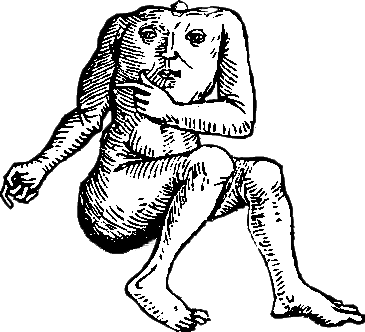There is an opportunity with new technologies and the agitation of the status quo to make creative spaces more connected to their communities and audiences, but it also comes with its share of risks that should be considered every step of the way. I guess my point is: let’s not exchange one exploitative system for another, where a handful of multinational corporations reap huge profits off user activity and we call it fair because any single post has the potential to pass before 1 billion pairs of eyes.
With the pervasiveness of desktop publishing, the increasing availability of (and reliance on) an internet connection, and the rise of print-on-demand services, juxtaposed with the hyper-consolidation and corporatization of publishers, gentrification, and austerity, the art, business, and craft of publishing have come to a crossroads in North America and Great Britain.
What is the culture, though? Is it just Briermere pies at Thanksgiving and a Peconic Bay oyster at happy hour? Is it Blue Point Brewery lager and North Fork Doughnut Co.? Is it the most contaminated water in New York state flowing from the tap?
One breaks into the canon only by aesthetic strength, which is constituted primarily of an amalgam: mastery of figurative language, originality, cognitive power, knowledge, exuberance of diction.
—Harold Bloom, The Western Canon
With acerbic wit and grand parodic visions, Aldo Palazzeschi challenges the status quo (whether they be institutions, norms, or conventions) and champions the odd balls, the outcasts, the contrarians, and the unconventional.
. . . publishing did not start yesterday, and this snapshot of the field failed to note some of the longstanding undercurrents and foundational battles that laid the groundwork for the moment described . . .
Seasonal newsletters recount the story of a featured title and trace its path from the writing and editing processes through to production, marketing, and sales . . .
The notion of the multitude, the polar opposite of that of 'people,' is defined by a complex of breaks, landslides, and innovations . . .
Have you ever felt like the work-in-progress of billions of microorganisms?
When looking for a work to juxtapose with Edgar Allan Poe's Eureka, we sought something that walked the line between wonderment and existential crisis. Poe wrote about a universal one-ness and the fluctuation from it + back again, Stefanie Fishel writes from somewhere in the middle of that arc. In her analysis of human + international relations, guided by Walt Whitman, Fishel develops new vocabularies and seeks new metaphors (with a little help from the human microbiome) to understand the current state of the world with greater precision and more nuance.
... But, at the top, I wanted to focus on the corporatization of publishing as it highlights many of the key issues not only in publishing but also in our culture at large. Whether it be the aftermath of the 2008 financial collapse, the rise of the Occupy Wall Street movement, the austerity cuts moving across Europe, to the current US election season, we have reached a crossroads, a true point of reflection to understand the forces at work in our daily lives and the balance of powers between individuals, institutions, and corporations. ...
“In 1947, Max Bense refines the argument in postwar terms that would be especially important to the multilayered form of [essay] film by noting: ‘The essayist is a combiner, a tireless producer of configurations around a specific object ... Configuration is an epistemological arrangement which cannot be achieved through axiomatic deduction, but only through literary ars combinatoria, in which imagination replaces strict knowledge’ ...”
In the Spring/Summer 2018 issue of VIA:Voices in Italian Americana, an excerpt from Nicholas Grosso's translation of "Ash Wednesday Supper" by Giordano Bruno was featured.
Get a sneak peek below or order your own copy of the issue today.
On January 14, Nicholas Grosso and literaturhaus were featured on a national book program in Italy—Rai Tg2’s Achab.
